The South American Championship 1955 was a football tournament held in Chile and won by Argentina with Chile as runners-up. Brazil, Bolivia, and Colombia withdrew from the tournament. Rodolfo Micheli from Argentina became top scorer of the tournament with 8 goals.
Listed below are the dates and results for the 1998 FIFA World Cup qualification rounds for the South American zone (CONMEBOL). For an overview of the qualification rounds, see the article 1998 FIFA World Cup qualification.
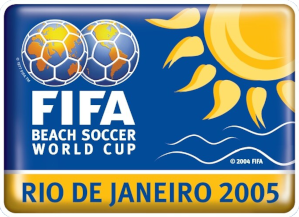
The 2005 FIFA Beach Soccer World Cup was the first edition of the FIFA Beach Soccer World Cup, an international beach soccer competition contest by men's national teams and organized by FIFA. Overall, it was the 11th edition of a world cup in beach soccer since its establishment with the first Beach Soccer World Championships in 1995. It took place in at Copacabana Beach in Rio de Janeiro, Brazil, between 8 and 15 May.
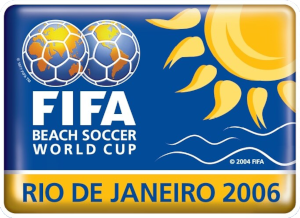
The 2006 FIFA Beach Soccer World Cup was the second edition of the FIFA Beach Soccer World Cup, governed by FIFA. Overall, this was the 12th edition of a world cup in beach soccer since the establishment of the Beach Soccer World Championships which ran from 1995–2004 but was not governed by FIFA. It took place in Rio de Janeiro, Brazil, from 2–12 November 2006.

The 2007 FIFA Beach Soccer World Cup was the third edition of the FIFA Beach Soccer World Cup, governed by FIFA. Overall, this was the 13th edition of a world cup in beach soccer since the establishment of the Beach Soccer World Championships which ran from 1995 to 2004 but was not governed by FIFA. It took place in Rio de Janeiro, Brazil, from 2–11 November 2007.

The 2008 FIFA Beach Soccer World Cup was the fourth edition of the FIFA Beach Soccer World Cup, governed by FIFA. Overall, this was the 14th edition of a world cup in beach soccer since the establishment of the Beach Soccer World Championships which ran from 1995–2004 but was not governed by FIFA. It took place in Marseille, France, in the Plages du Prado from 17 to 27 July 2008. It was the first tournament to take place outside Brazil.

The 2009 FIFA Beach Soccer World Cup was the fifth edition of the FIFA Beach Soccer World Cup, governed by FIFA. Overall, this was the 15th edition of a world cup in beach soccer since the establishment of the Beach Soccer World Championships which ran from 1995 to 2004 but was not governed by FIFA. It took place in Dubai, the United Arab Emirates between 16 November and 22 November 2009. It was the second tournament to take place outside Brazil, first to be played in Asia, and the last tournament to take place on an annual basis.

The 2003 Beach Soccer World Championships was the ninth edition of the Beach Soccer World Championships, the most prestigious competition in international beach soccer contested by men's national teams until 2005, when the competition was then replaced by the second iteration of a world cup in beach soccer, the better known FIFA Beach Soccer World Cup. It was organized by Brazilian sports agency Koch Tavares in cooperation with and under the supervision of Beach Soccer Worldwide (BSWW), the sports governing body.
The BSWW Mundialito, often simply known as Mundialito, is an annual international beach soccer tournament that takes place between few select countries, which are invited to play at the tournament organized by Beach Soccer Worldwide (BSWW). First played in 1994 at Copacabana beach, Rio de Janeiro, Brazil, the competition was reignited in 1997 in Portugal, where it was held ever since until 2022. Few nations have won the tournament, those being only Brazil, Portugal, United States, and Spain.
The South American Zone of 2014 FIFA World Cup qualification saw nine teams competing for 4 or 5 berths in the finals. Brazil automatically qualified for the World Cup as the host nation so were not involved in CONMEBOL qualifying. Argentina, Colombia, Chile, Ecuador and Uruguay advanced to the World Cup.
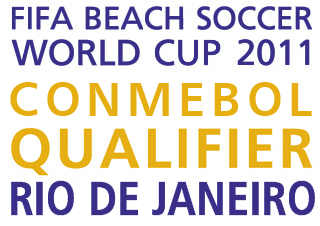
The 2011 FIFA Beach Soccer World Cup CONMEBOL qualifier, also later and commonly known as the 2011 South American Beach Soccer Championship, was the fourth Beach Soccer World Cup qualification championship for South America, held from July 31– August 7 on Copacabana beach in Rio de Janeiro, Brazil. The tournament was originally scheduled to take place from 7 – 14 May 2011.
The 2007 FIFA Beach Soccer World Cup Final took place between Mexico and Brazil on 11 November 2007 at Copacabana Beach, Rio de Janeiro. Brazil were the winners, winning by eight goals to two. Brazil have beaten fifteen other teams to be crowned 2007 FIFA Beach Soccer World Cup Winners. It was Brazil's second title in a row.
The South American section of the 1962 FIFA World Cup qualification saw 7 teams competing 3 berths in the finals.
The knockout stages of the 2012 Copa Santander Libertadores de América consisted of four stages:
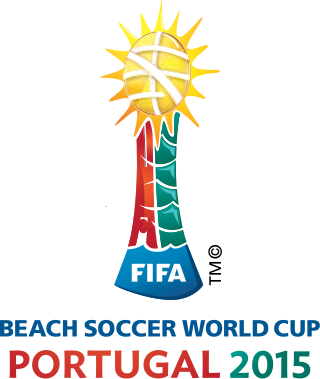
The 2015 FIFA Beach Soccer World Cup was the eighth edition of the FIFA Beach Soccer World Cup, the premier international beach soccer competition for men's national teams, which has been organized by FIFA since 2005. Overall, this was the 18th edition of a world cup in beach soccer since the establishment of the Beach Soccer World Championships which ran from 1995 to 2004 but was not governed by FIFA. It was also the third edition to take place under the biennial system introduced in 2009.

The 2017 FIFA Beach Soccer World Cup was the ninth edition of the FIFA Beach Soccer World Cup, the premier international beach soccer championship contested by the men's national teams of the member associations of FIFA. Overall, this was the 19th edition of a world cup in beach soccer since the establishment of the Beach Soccer World Championships which ran from 1995 to 2004 but was not governed by FIFA. This was the fourth tournament to take place under the biennial basis; the World Cup now takes place once every two years, after taking place on a yearly basis until 2009.

The 2017 FIFA Beach Soccer World Cup qualifiers for UEFA was a beach soccer tournament played in Jesolo, Italy, from 2 to 11 September 2016, which determined the four teams that qualify to the 2017 FIFA Beach Soccer World Cup in the Bahamas.
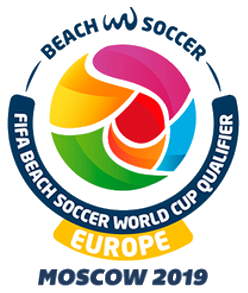
The 2019 FIFA Beach Soccer World Cup qualifiers for UEFA was a beach soccer tournament contested by European men's national teams who are members of UEFA that determined the five nations from Europe that qualified to the 2019 FIFA Beach Soccer World Cup in Paraguay.

The 2021 FIFA Beach Soccer World Cup was the 11th edition of the FIFA Beach Soccer World Cup. Overall, this was the 21st edition of a world cup in beach soccer since the establishment of the Beach Soccer World Championships which ran from 1995 to 2004 but was not governed by FIFA. This was the sixth tournament to take place biennially; the World Cup took place annually until 2009. The tournament took place in Moscow, capital of Russia, between 19 and 29 August 2021.

The 2024 FIFA Beach Soccer World Cup was the 12th edition of the FIFA Beach Soccer World Cup, the premier international beach soccer championship contested by men's national teams of the member associations of FIFA. Overall, this was the 22nd edition of a world cup in beach soccer since the establishment of the Beach Soccer World Championships which ran from 1995 to 2004 but which was not governed by FIFA; all world cups took place annually until 2009 when it then became a biennial event.













